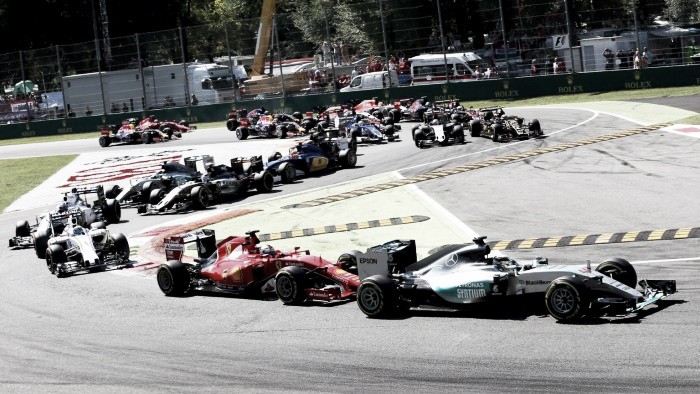In one of the most important moves in Formula One history, Liberty Media, a US media communications company have announced that they have brought 18.3% of the sport – the first of two deals that will see the firm, owned by John Malone, eventually acquire the remaining 81.3% of shares.
The move signifies the beginning of the end for F1’s much-despised current majority shareholders, CVC Capital Partners and its chairman Donald Mackenzie, an initial payment of £1.1 billion cash will be laid down.
In the second part of the deal, the remainder of the company will be transferred, subject to FIA confirmation, and other regulators, bringing Liberty’s total investment to £4.4bilion. They will also take on Formula One’s £4.1billion debts to have a total value on the sport of just over £8 billion.
Ecclestone to stay on – for now
At last weekend’s Italian Grand Prix, there were strong rumours that the marmite that is Bernie Ecclestone was attending his last race as F1 ringmaster. The man himself has since denied that, by claiming the new owners “want me to be here for three-years”.
This makes sense, as nobody on the planet knows as much about how F1 works, or is involved in its complex politics as Ecclestone. Everything we know and love about modern Formula One, was built-up by Ecclestone.
New Chairman
Chase Carey, will be installed as Formula One’s new chairman upon completion of the deal, expected to be within the first three months of 2017.
Carey, with close links to media magnate Rupert Murdoch, will work alongside Ecclestone, who remains as group CEO, although the old question of who, or indeed what, replaces Ecclestone when he stops surely now has an answer.
CVC have been much ridiculed for not investing in F1, and seeing it as just a profit device, however, in a statement issued by Carey shortly after the deal was announced, he said “I see a great opportunity to help Formula One continue to develop and prosper for the benefit of the sport, fans, teams and investors alike”.
F1 has long been criticised for not making the most of its appeal to young people, and not using its power to break into the lucrative American market, which is crucial for it.
Who is John Malone and Liberty Media?
Malone owns Liberty Media, who specialty is mass media. In the late 1990’s they saw the promise of the new technology of the time to develop the use of interactive features on set-top boxes.
The company currently owns the Atlanta Braves baseball team as well have having interest in US TV, with The Discovery Channel and PBS amongst its channels with which it has close links. Malone has 29% of shares in Discovery.
.JPG)
What does it mean for F1?
Due to the interest in telecommunications, with Liberty being a spin-off of the now defunct Tele-communications Inc. this deal is a move in the right direction for Formula One.
Instead of a private equity firm controlling the sport, the new owners are proponents of trying to improve the spectacle and show for the fans. Carey, has already indicated that he wishes to keep F1’s ‘European’ base intact, good news for Italy and Germany, which could herald the return of the French GP.
Over the last few years, F1 has ventured to countries with no motorsport heritage whatsoever, Korea and India the two most obvious. Despite it being on the calendar since 2004, China has never caught the F1 bug.
Whilst countries like Azerbaijan and Russia can use oil money to secure a place on the calendar, the races in such places are often dull and uninspiring. Carey’s comments will go a long way to reassuring the fans that their opinion might just have more value and weight.
Reactions from the F1 world
Much of the reaction has been positive, due to Liberty’s values of trying to keep things competitive and fair.
The Force India and Sauber teams will find that beneficial. In response to the bias of F1’s prize money structure to the top teams, they lodged a complaint to the European Union. Fair, equal and proportionate prize money distribution will ensure that the teams are rewarded on the basis of their performance, not their longevity.
Christian Horner, of Red Bull speaking to the media, added that: “The expertise they have on digital platforms, social platforms and the US market are all areas that F1 has been historically weak in." He went on to say, “Liberty are probably the best buyers for F1.”
The deal to sell Formula One to Liberty Media will ensure that the sport grows, develops and maximises its global potential, rather than stall and drift away from its core values. It is the beginning of a bright new era.









































